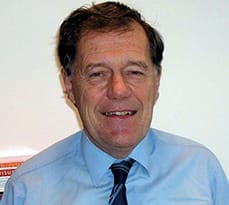Honorary Senior Research Associate
Cambridge Centre for Finance/Cambridge Endowment for Research in Finance)
Fellow (Finance), Fellow (Accounting) and Emeritus Professor
Life Fellow of Fitzwilliam College
BSc (University of London), MA, PhD (University of Cambridge), Hon DSc (Edinburgh University), Hon DUniv (University of Sussex)
My research examines the theoretical underpinnings of accounting standards, including the current revision of the conceptual framework for financial reporting; measurement in accounting, particularly fair value and its relationship to other current value measures.

Professional experience
Professor Geoffrey Whittington is a chartered accountant whose past experience includes his role as Consultant to the Royal Commission on the Distribution of Income and Wealth. He is a part-time Advisor to the Office of Fair Trading (on the Stock ‘Big Bang’ Exchange case), and a part-time Member of the Monopolies and Mergers Commission. He has been an Academic Advisor and subsequently a part-time Member of the Accounting Standards Board (UK), and he is a full-time Member of the International Accounting Standards Board. He has acted as a consultant to leading national and international companies on competition policy, accounting and pricing issues.
Professor Whittington is a First Member of 3 RAE panels, Chair of one and Deputy Chair of another. A member of many editorial boards, he is also an advisor on many Chair appointments and member of many professional committees (Institutes of Chartered Accountants in England and Wales and of Scotland) relating to research, technical matters and accounting standards. He was a member of the Meade Committee on the reform of direct taxation, and subsequently of the IFS Tax Law Reform Committee, and a member of the DTI Company Law Review panel on financial reporting. Currently he is member of 4 editorial boards, and a member of the Academic Panels of the UK Accounting Standards Council and of the Competition and Markets Authority.
Previous appointments
Professor Whittington trained as a Chartered Accountant and started his academic career as a researcher in the Department of Applied Economics at Cambridge and Director of Studies in Economics at Fitzwilliam College. He subsequently held the chairs of accounting and finance at Edinburgh and Bristol before returning to Cambridge as Price Waterhouse Professor of Financial Accounting in the Faculty of Economics (1988). He left in 2001 to take a 5-year appointment as a full-time member of the International Accounting Standards Board, returning to Cambridge in 2006.
Awards and honours
- Honorary Doctor of the University, University of Sussex, 2014
- Chambers Prize (joint) for the best paper in Abacus, 2010
- Founding Societies’ Centenary Award, Institute of Chartered Accountants in England and Wales, 2003
- CBE in the New Year Honours list, 2001
- Honorary Doctor of Science, University of Edinburgh, 1997
- Elected Distinguished Academic of the Year, British Accounting Association, 1994
News and insight
Insight
Corporate Darwinism
Only 19 of 1,513 UK companies survived 70 years after mandatory consolidated accounts in 1948, says natural selection-inspired study at Cambridge Judge Business School.
Cambridge University Press has recently published a new book by Geoffrey Whittington, Honorary Senior Research Associate at the Cambridge Centre for Finance (CCFin). Value and Profit An Introduction to Measurement in Financial Reporting looks at the measurement methods used in financial accounting, and how they affect our perception of the value and performance of businesses by determining the amount of reported profit or loss and the resources of the business. Thus, measurement affects shareholders and other stakeholders in the business. It has even been suggested that the world financial crisis of 2007–2010 was partly due to the mis-measurement of financial instruments. In the book, Professor Whittington provides a unique survey of the theory and practice of measurement in financial accounts. It seeks to define and illustrate alternative methods, using simple numerical examples, and to analyse their theoretical properties. Also, it summarises extensive empirical evidence and the historical development of ideas and practice. It is essential reading for advanced undergraduate and postgraduate students studying financial accounting, as well as practitioners and policy-makers concerned with accounting standards.…



